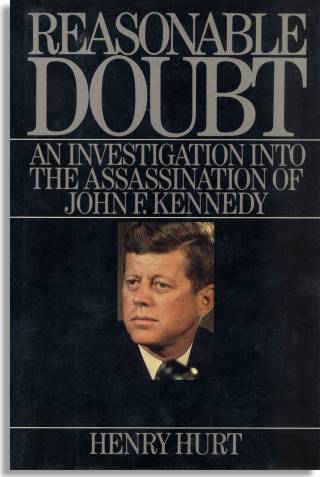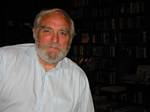
Holt, Rinehart, and Winston (1985). Index. 555pp. 6.25 x 9.25 inches. Hardcover. ISBN 0-03-004059-0.
While there was nothing simple about the life of John Kennedy, his assassination stands as one of the great mysteries of modern times. The earliest official investigation — the Report of the Warren Commission issued in 1964 — concluded that a lone assassin, Lee Harvey Oswald, shot and killed President Kennedy. After a brief period of acceptance of this conclusion, public skepticism began to grow as people learned more about the Warren Commission's work.
Fifteen years later it became politically expedient to reopen the assassination case in the form of a Congressional investigation. The House Select Committee on Assassinations came up with a new and startlingly different conclusion — that Kennedy probably died at the hands of conspirators. The public reaction to this offical conclusion of conspiracy seemed blasé. Astonishingly, in 1983, though 80 percent of Americans believed that JFK was killed by conspirators, 70 percent saw no reason to reopen the case to learn the truth.
Henry Hurt writes: “As one of the 80 percent who doubted the official version I began a quest to understand the case. Beyond the general feeling that the official version seemed illogically simplistic, I was not burdened by an preconceived notions. During the early months of research I fully expected at any moment to encounter that single, unalterable piece of evidence that would leave no doubt that Oswald had acted alone. That discovery never came. Instead, the evidence continued to point in a different direction.”
It is the openness and resiliency of the American system that has prevented the JFK case from being closed and stifled: a band of independent people — teachers, lawyers, housewives, doctors, scholars, photographers — would not swallow the official line, and have given years of their spare time and their personal resources to inch the case toward some plausible resolution. Without their work this book would have been impossible.
The assassination of John F. Kennedy set into motion a pervasive transfer of power, one that shifted the basic thrusts of American policy. If the purpose of the assassination was to bring about such profound changes, then his killing was a shattering success. Indeed, the political impact of his death is why the question of his assassination is as important today as it was twenty years ago. If the atrocity was indeed the result of a conspiracy, then the country and the government, even at this hour, are subtly threatened by a cunning, invisible enemy as politically potent as the most menacing superpower.
Reasonable Doubt is the most thorough, objective, well-documented study of the Kennedy assassination that has ever been done. The author, with a research team, spent several years sifting and analyzing mountains of data, following every lead, cross-checking and corroborating every fact from at least two sources, and interviewing hundreds of people involved with and knowledgeable about the case. The result is a work that is riveting, authoritative, and utterly convincing — a massive synthesis that doubtless sheds as much light on the awful tragedy in Dallas as we will ever have.

Henry Hurt, an investigative reporter and former Rockefeller Foundation fellow, lives with his family in Chatham, Virginia.
This website is sponsored by Mitchells Publications.
Copyright © 2002–2008 Patricia B. Mitchell.